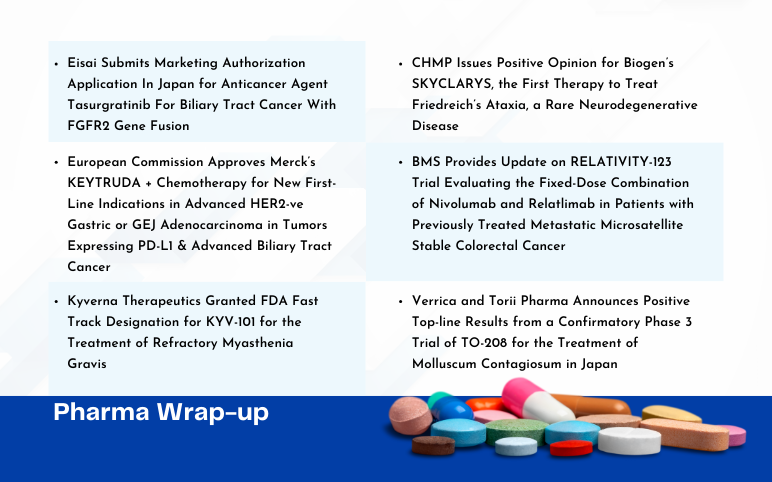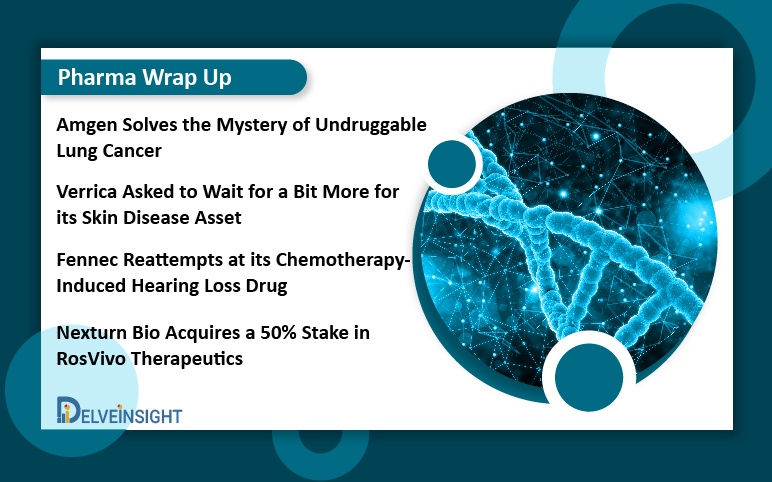What to Expect for the Molluscum Contagiosum Treatment in the Coming Years?
Aug 12, 2022
Table of Contents
Molluscum contagiosum, often known as water warts, is a common superficial skin disease caused by the poxvirus. The molluscum contagiosum virus (MCV) is one of the world’s 50 most common diseases. It mostly affects school-aged children, sexually active young adults, and immunocompromised people.
As per our analysis, the total prevalent cases of molluscum contagiosum associated in 7MM countries was around 12.5 million in 2021. In 2021, the total prevalent cases of molluscum contagiosum were highest in the US. These numbers are further anticipated to increase by 2032. Moreover, as per DelveInsight’s epidemiology model, the molluscum contagiosum prevalent cases were higher in females than males in 2021 in the US.
Downloads
Click Here To Get the Article in PDF
Current Scenario of Molluscum Contagiosum Treatment
As molluscum contagiosum is self-limiting in healthy people, treatment may not be necessary. Nonetheless, factors such as lesion appearance, underlying atopic condition, and a desire to prevent transmission may motivate molluscum contagiosum treatment. Until recently, molluscum contagiosum treatment options were confined to tissue destruction, such as curettage, cryotherapy, CO2 laser, electrodessication, trichloracetic acid, and cantharadin. Topical immune modulators have recently been utilized with considerable effectiveness. These molluscum contagiosum treatments, however, do not eradicate the molluscum contagiosum virus but rather keep it at bay.
Curettage is a simple and very affordable molluscum contagiosum treatment that has the added benefit of preserving the tissue removed for histological study in the event of diagnostic uncertainty. EMLA cream, a eutectic combination of local anesthetics (2.5% lidocaine and 2.5% prilocaine), is widely used in children to relieve pain caused by the operation, albeit it can trigger local, self-resolving purpuric responses when applied to molluscum contagiosum lesions.
Burning and surgical excision are normally reserved for warts that are resistant to other molluscum contagiosum treatments. Because of the related pain, appropriate anesthetic molluscum contagiosum treatments are required. Moreover, molluscum contagiosum treatment can be completed in a single visit and is successful, although it cannot be guaranteed owing to such aggressive treatments.
Additionally, immunotherapeutic approaches work by inducing cellular and humoral immune responses capable of eliminating the viral infection. Injection agents, candida antigen, mumps antigen, interferon alfa-2b (Intron A), and interferon alfa-N3 (Alferon N) are immune-modulating wart molluscum contagiosum treatments. Topical immunotherapy therapies include imiquimod (Aldara), systemic drugs, and cimetidine (Tagamet).
Furthermore, to address unmet market needs and provide improved molluscum contagiosum treatment options, various market players are working hard on single-agent novel molecules as well as combination and dosage modifications of current molluscum contagiosum medications. Several molluscum contagiosum therapies are expected to be launched by 2032, therapy potentially driving molluscum contagiosum market growth. Verrica Pharma, Novan/Ligand Pharma, and Veloce Biopharma are among the major companies working in the molluscum contagiosum treatment market.

Potential Molluscum Contagiosum Treatment Options in Development
As there are no recognized molluscum contagiosum treatments, existing treatments are symptomatic rather than curative. As a result, there is no one standard of care for molluscum contagiosum treatment. This is a concern for immunocompromised people, who are frequently impacted by severe to chronic molluscum. As a result, to cater to the need of the patients, several leading molluscum contagiosum companies are developing novel therapies to improve the molluscum contagiosum treatment landscape.
Moreover, DelveInsight’s analysts estimate that the molluscum contagiosum treatment market is expected to show positive growth. As per our analysis, the molluscum contagiosum market size was found to be approx USD 2 billion in the 7MM in 2021.
The molluscum contagiosum market size is further anticipated to increase during the study period, mainly attributable to the rising prevalence and the launch of the molluscum contagiosum drugs in the pipeline. Some of the drugs in the molluscum contagiosum pipeline include VP-102 (Verrica Pharma), SB206 (Novan / Ligand Pharma), VBP-245 (Veloce Biopharma), among others.
VP-102 is a topical drug-device combination developed by Verrica Pharmaceuticals that contains 0.7% w/v cantharidin solution to treat molluscum contagiosum, common warts, and external genital warts. VP-102 has the potential to be a first-in-class molluscum contagiosum therapy. Following the favorable findings of two pivotal Phase III studies, Verrica Pharmaceuticals submitted an NDA for VP-102 to the US FDA for the molluscum contagiosum treatment. Verrica Pharmaceuticals intends to meet with the FDA to evaluate the next steps in the development of VP-102 for common warts after successfully completing the Phase II molluscum contagiosum clinical trial with positive findings.
SB206 (Novan / Ligand Pharma) is a nitric oxide-based topical gel used to treat viral skin infections, with a focus on molluscum contagiosum treatment. The NITRICIL technology platform developed by Novan is the first macromolecular platform to offer stable, adjustable, and druggable nitric oxide delivery. SB206, a topical nitric oxide product based on this technique, is being developed. Nitric oxide has a wide range of biological activities in the body, including the immunological, cardiopulmonary, and neurological systems. Nitric oxide can have agonistic or antagonistic effects depending on the dosage and release kinetics. B-SIMPLE (berdazimer sodium in molluscum patients with lesions) trials, such as B-SIMPLE1 and B-SIMPLE2, were designed by Novan. They are multicenter, randomized, double-blind, vehicle-controlled Phase III molluscum contagiosum clinical trials to assess the effectiveness and safety of SB206 for the molluscum contagiosum treatment.
Veloce Biopharma is developing VBP-245 (Povidone-iodine) as a topical gel to treat molluscum contagiosum. Povidone-iodine is a broad-spectrum antibacterial agent that kills microorganisms such as bacteria, viruses, yeasts, molds, fungus, and protozoa. The topical formulation has completed Phase II studies for the molluscum contagiosum treatment at three sites in the United States. Veloce Biopharma, however, has not yet released the data.
Expected Challenges for Molluscum Contagiosum Treatment
There are several factors that are hindering the growth of the molluscum contagiosum treatment market. The easy availability of less expensive alternative therapies: at-home and over-the-counter topical medicines to relieve pain are the prominent ones. Moreover, the self-limiting nature of molluscum contagiosum supports the wait-and-see approach in many healthy people. Pathogenesis of diverse MCV subtypes in different populations is unknown. In the absence of precise diagnostic criteria, clinical diagnosis is still based on the presence of water warts. Very low diagnostic rates since all afflicted persons do not seek medical assistance and instead wait for the condition to resolve on its own. Furthermore, there are no uniform molluscum contagiosum treatment guidelines. Moreover, there is a scarcity of real-time data on the epidemiology of molluscum contagiosum. Additionally, children's lack of understanding about infectious diseases leads to major outbreaks.
However, the anticipated launch of newly approved molluscum contagiosum therapies, VP-102 and SB206, is projected to drive molluscum contagiosum treatment market growth in the near future. These might lead to a novel class of topical therapeutics (drug-device combination) that can provide a safe and effective alternative to the treatments now available to molluscum contagiosum patients. Moreover, the molluscum contagiosum prevalence is also increasing, thereby creating opportunities for market leaders to improve the molluscum contagiosum treatment outlook. Additionally, an increasing desire for molluscum contagiosum therapy that is easy to administer and has a longer duration of effect is expected to enhance molluscum contagiosum market acceptance of novel therapies.
FAQs
Molluscum contagiosum, often known as water warts, is a common superficial skin disease caused by the poxvirus. The molluscum contagiosum virus (MCV) is one of the world's 50 most common diseases. It mostly affects school-aged children, sexually active young adults, and immunocompromised people.
Molluscum contagiosum symptoms include raised, round, skin-colored bumps, itchy, pink bumps, bumps on the face, trunk, arms, or legs of children, and others.
Physical destruction, immunomodulation, and antiviral medicines are the most common molluscum contagiosum treatment techniques used, and combinations of these therapies may be used. Cryotherapy, curettage, laser, salicylic acid, and other molluscum contagiosum treatments can be used to physically destroy lesions; however, these operations can be unpleasant and leave scars.
Molluscum contagiosum causes include the spread of the virus through skin contact, sexual contact, scratching or rubbing the bumps, contact with infected objects, among others.
Verrica Pharma, Novan/Ligand Pharma, and Veloce Biopharma are among the major companies working in the molluscum contagiosum treatment market.
Some of the drugs in the molluscum contagiosum pipeline include VP-102 (Verrica Pharma), SB206 (Novan / Ligand Pharma), VBP-245 (Veloce Biopharma), among others.
Downloads
Article in PDF



